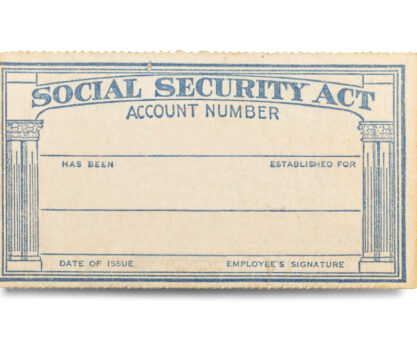Once you start taking distributions from your tax-deferred, traditional Thrift Savings Plan (TSP), it can start a domino effect that pushes you into a higher income tax bracket. And if you’re not prepared for Required Minimum Distributions (RMDs) once you hit age 73, you may experience what many call a retirement tax bomb.
Over 90% Of Your FERS Annuity Is Taxable
Many federal retirees are shocked to learn that a majority of their FERS annuity (pension) is subject to federal income tax. When you retire, only the portion you contributed is tax free. As much as 90% or more of your annuity is comprised of the government’s untaxed contributions plus the earnings that accrue on your contributions and the government’s contributions to your pension.
100% Of Traditional TSP Distributions Are Taxable
During your career, the tax-deferred contributions to your traditional Thrift Savings Plan (TSP) help lower your income taxes. However, once you retire and start taking TSP distributions, 100% of the funds you withdraw are subject to taxes at the current regular income tax rate.
Up To 85% Of Your Social Security Income Is Taxable
Once you start collecting Social Security in retirement, 50% to 85% of your benefit is taxable when your combined income in a given year exceeds thresholds established by the IRS. Keep in mind, the thresholds determining the taxation of Social Security benefits have never been adjusted for inflation. As a result, more and more middle-income retirees find themselves owing income taxes on their Social Security.
“If you haven’t taken any TSP distributions by age 73, you may be hit with an unexpected tax bomb that pushes you into a higher tax bracket.”
How RMDs Can Put You In A Higher Tax Bracket
Since contributions to your traditional TSP are deducted from your after-tax earnings, your balance remains tax-deferred until you start taking distributions in retirement. However, as the IRS website explains rather bluntly: “You cannot keep retirement funds in your account indefinitely.” RMDs are Uncle Sam’s way of finally getting his cut. If you haven’t taken any TSP distributions by age 73, you may be hit with an unexpected tax bomb that pushes you into a higher tax bracket.
Tax Cuts and Jobs Act (TCJA) Expires December 31, 2025
If Congress doesn’t extend the TCJA tax cuts, individual income tax rates will revert back to pre-TCJA levels starting in 2026. As the deadline approaches, pre-retirees need to understand that tax planning is crucial to their future financial security. An FRC® trained advisor can connect you with a highly experienced tax professional to help you develop a strategy for lowering income taxes throughout your retirement.



























